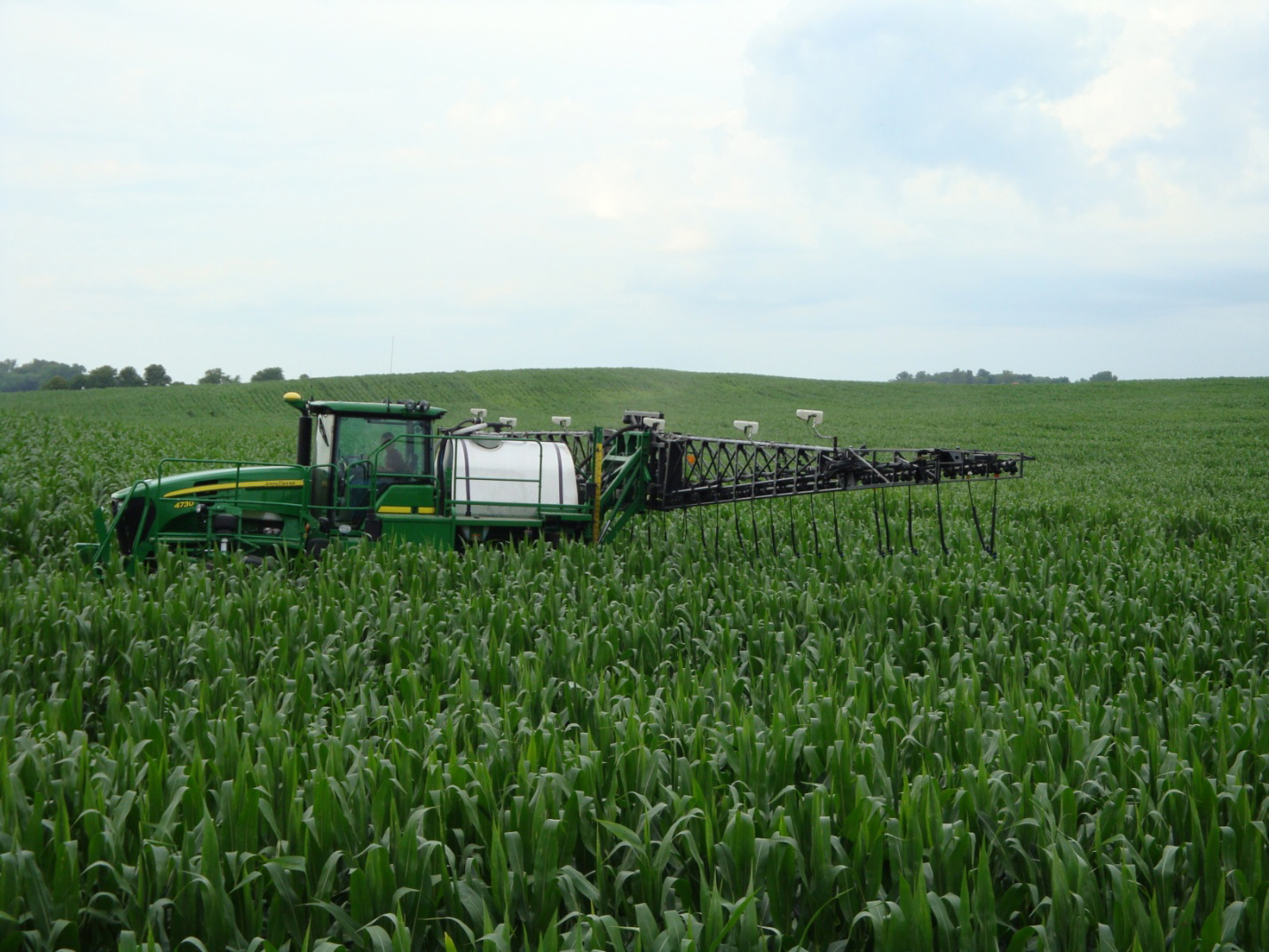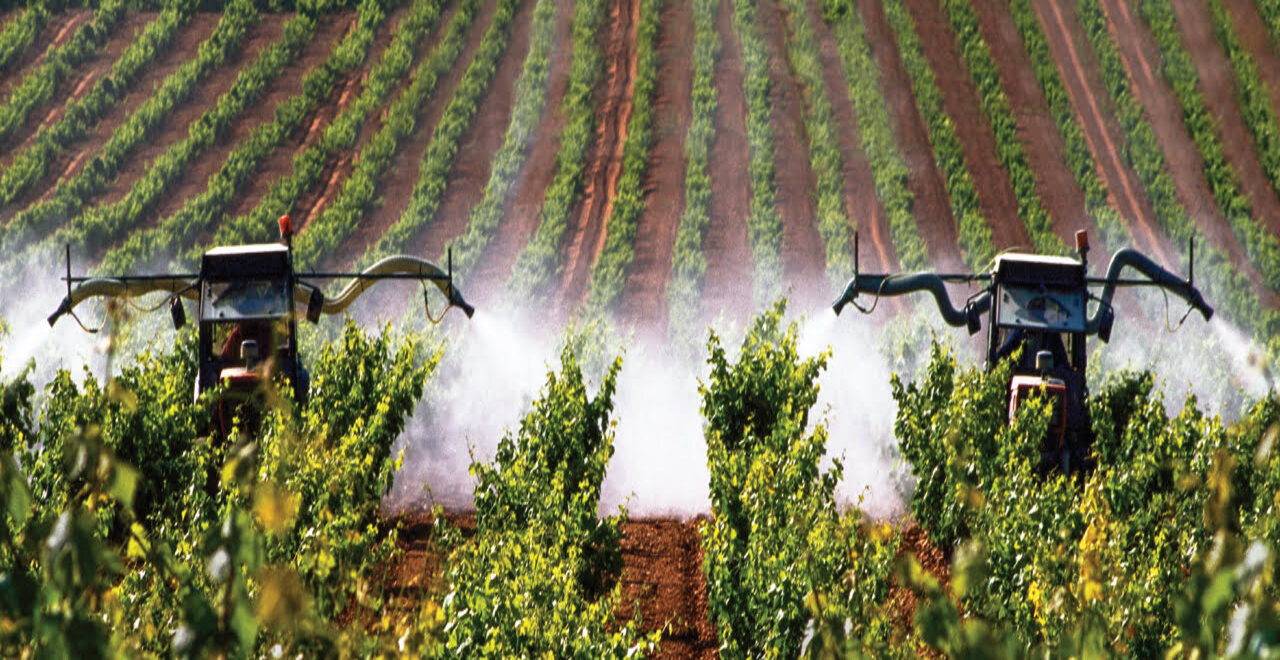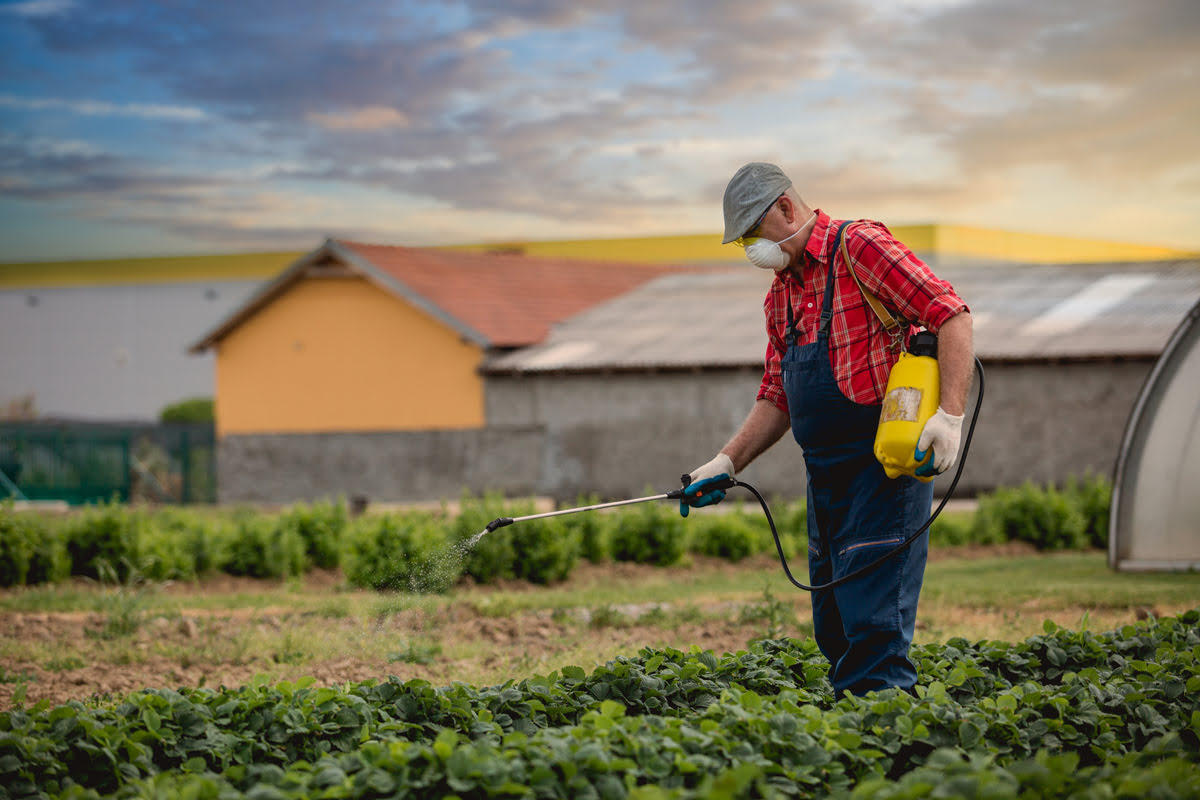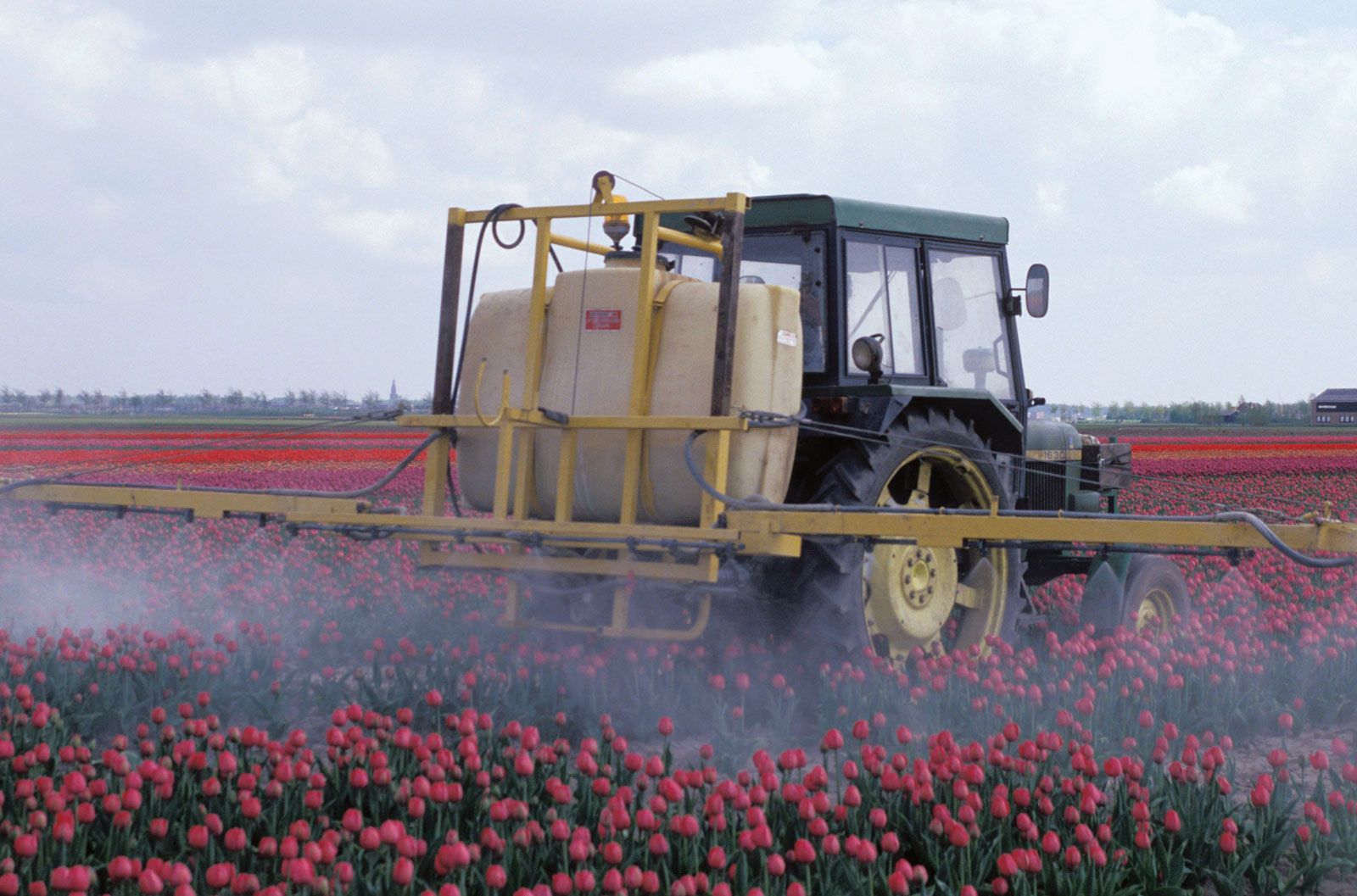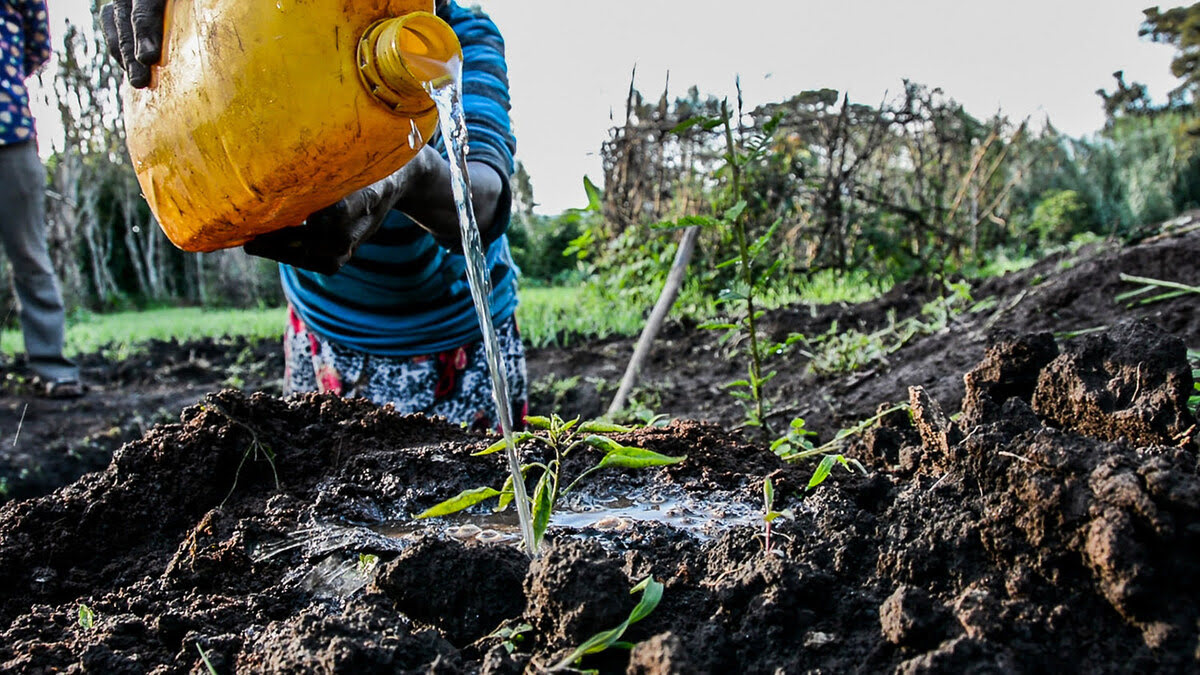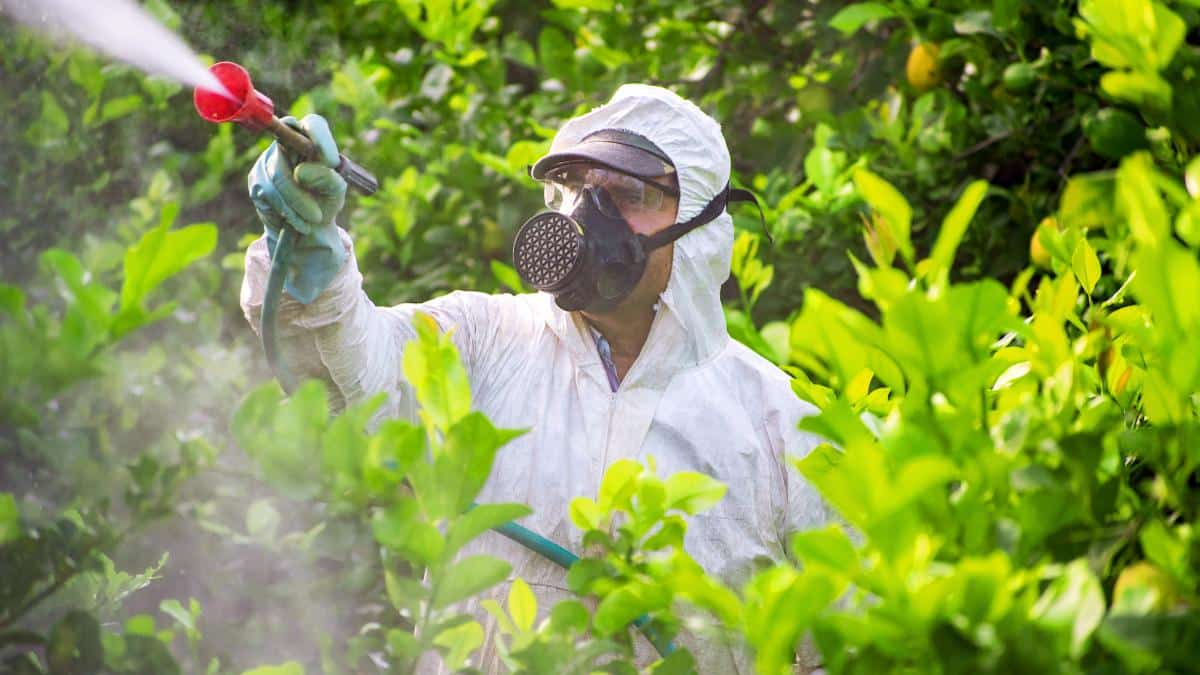Home>Gardening News and Trends>Latest News>What Would Happen If We Stopped Using Pesticides
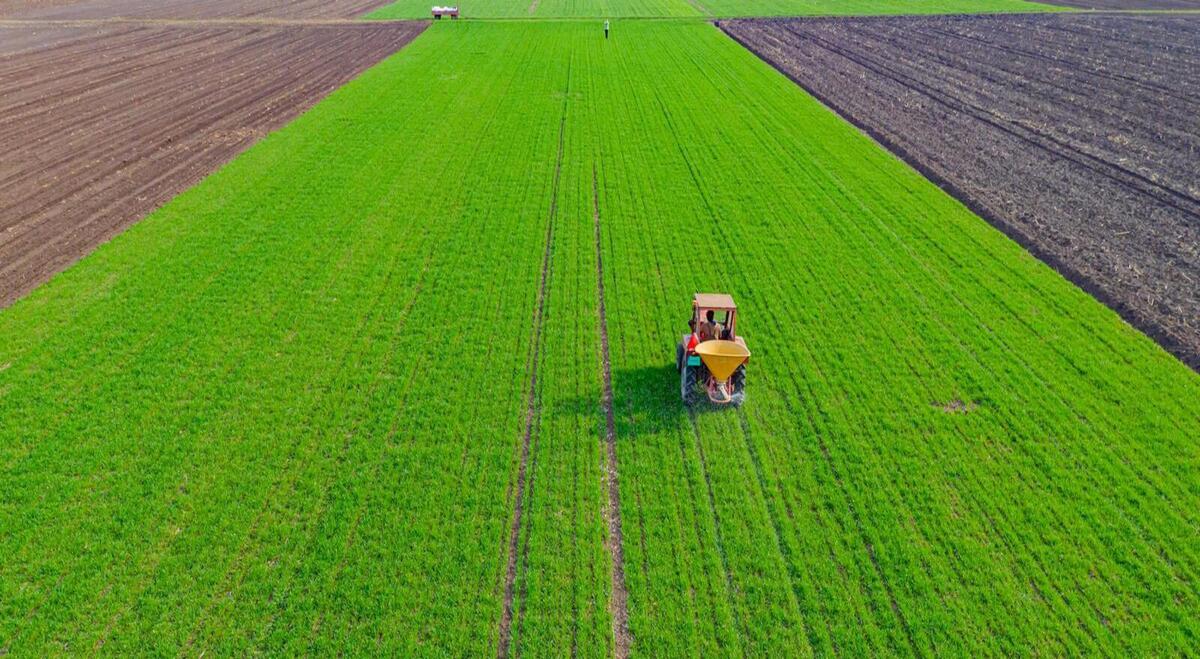

Latest News
What Would Happen If We Stopped Using Pesticides
Modified: January 22, 2024
Discover the latest news on the impact of pesticides, and what would happen if we stopped using them. Stay informed and make informed decisions for a greener future.
(Many of the links in this article redirect to a specific reviewed product. Your purchase of these products through affiliate links helps to generate commission for Chicagolandgardening.com, at no extra cost. Learn more)
Table of Contents
Introduction
Welcome to the world of pesticides, where the delicate balance between human progress and the preservation of our environment hangs in the balance. Pesticides, chemical substances used to control pests and disease-causing organisms, have become an integral part of modern agriculture and public health initiatives. However, their widespread use comes with both benefits and consequences.
Pesticides have undoubtedly revolutionized the way we produce food and protect our crops from pests and diseases. They have contributed to increased agricultural yields, improved food quality, and reduced crop losses due to pest infestations. On the other hand, it is critical to acknowledge the potential side effects of pesticide use on the environment and human health.
Over the years, concerns have been raised about the impact of pesticides on the environment. Studies have shown that pesticides can contaminate soil, water bodies, and even the air we breathe. This contamination can have far-reaching ecological consequences, affecting ecosystems and the species that rely on them. It can disrupt the natural balance, harm non-target organisms, and lead to biodiversity loss.
Additionally, the effects of pesticide use on human health have become a subject of great concern. Prolonged exposure to pesticides has been linked to various health issues, including respiratory problems, neurodevelopmental disorders, and even certain types of cancer. This has raised questions about the long-term sustainability and safety of pesticide use.
Amidst these concerns, there has been growing interest in exploring alternatives to reduce pesticide usage. Integrated Pest Management (IPM) strategies, for instance, focus on minimizing pesticide use by employing a combination of biological control, crop rotation, and cultural practices. Organic farming, which prohibits the use of synthetic pesticides, has also gained popularity as a sustainable and eco-friendly approach to agriculture.
However, shifting away from pesticide reliance is not without its challenges. Farmers heavily dependent on pesticides may face reduced yields and increased production costs. Additionally, there may be a need for greater research and investment in alternative pest control methods.
In this article, we will explore what would happen if we stopped using pesticides. We will examine the potential impact on the environment, discuss the effects on human health, consider alternative pest control methods, and weigh the benefits and drawbacks of eliminating pesticide use. Through case studies, we will also examine real-world examples of countries and regions that have reduced pesticide usage to provide insights into the possible consequences of such a shift.
So, buckle up as we embark on this journey to uncover the potential implications of a pesticide-free future.
The Impact of Pesticides on the Environment
Pesticides have undoubtedly played a crucial role in increasing agricultural productivity and protecting crops from pests and diseases. However, their use has also had significant consequences for the environment.
One of the primary concerns regarding pesticides is their potential to contaminate the soil and water bodies. When pesticides are applied to fields, they can leach into the soil and be transported by rainwater or irrigation systems, eventually reaching nearby rivers, lakes, and groundwater reservoirs. This contamination poses a serious threat to aquatic ecosystems, affecting not only fish and other aquatic organisms but also the livelihoods of those who rely on these water bodies for their sustenance.
Moreover, pesticides can have long-term effects on soil health and biodiversity. They can disrupt the natural microbial balance in the soil, leading to a decrease in beneficial microorganisms and an increase in harmful ones. This alteration in soil microbiology can result in reduced nutrient availability, impaired plant growth, and overall degradation of soil quality. Additionally, pesticides can have detrimental effects on beneficial insects, such as bees and butterflies, which play a crucial role in pollination and maintaining ecosystem balance.
Pesticide use also has the potential to disrupt food chains and ecological interactions. When pesticides are sprayed to eliminate specific pests, they can inadvertently harm non-target organisms. For example, spraying insecticides to control crop pests may also impact beneficial insects that prey on those pests, leading to imbalances in pest populations.
Furthermore, the accumulation of pesticides in the environment can have far-reaching consequences on biodiversity. Birds, mammals, and other wildlife may ingest contaminated food or be directly exposed to pesticides through contaminated water or soil. This can lead to population declines, reproductive issues, and even extinction in extreme cases.
It is important to note that pesticide residues can also find their way into the food chain. When crops are treated with pesticides, traces of these chemicals can remain on the harvested produce. This raises concerns about the potential impact of pesticide residues on human health.
Given these environmental risks associated with pesticide use, there has been a growing movement towards adopting more sustainable alternatives. Integrated Pest Management (IPM) strategies, for example, promote the use of diverse pest control methods while minimizing reliance on pesticides. In addition, organic farming practices, which prohibit the use of synthetic pesticides, focus on enhancing soil health and biodiversity through natural, eco-friendly approaches.
Considering the potential environmental impacts of pesticide use, it is crucial to strike a balance between agricultural productivity and ecological sustainability. Exploring and implementing alternative pest control methods can help mitigate the negative effects of pesticides on the environment, leading to a more sustainable and resilient agricultural system.
The Effect of Pesticides on Human Health
Pesticides, while serving as a valuable tool for protecting crops and public health, have raised concerns about their potential impact on human health. Exposure to pesticides, whether through direct contact, inhalation, or consumption of pesticide-treated food, can have various detrimental effects.
One of the primary health concerns associated with pesticide exposure is the risk of acute poisoning. Farmers, agricultural workers, and individuals living in close proximity to pesticide application areas are particularly vulnerable to accidental exposure. Acute pesticide poisoning can lead to symptoms such as nausea, vomiting, dizziness, headaches, and even more severe effects on the central nervous system.
Long-term exposure to pesticides has also been linked to chronic health issues. Studies have shown associations between pesticide exposure and respiratory diseases, including asthma and chronic bronchitis. Pesticide exposure has also been linked to an increased risk of certain types of cancer, such as leukemia, lymphoma, and prostate cancer.
Moreover, pesticides can have adverse effects on neurodevelopment, particularly in children. Children exposed to pesticides during critical periods of brain development may experience cognitive impairments, behavioral problems, and developmental delays. Prenatal exposure to pesticides has also been associated with birth defects and developmental disorders.
Additionally, some pesticides have hormone-disrupting properties, which can interfere with the endocrine system. These endocrine-disrupting chemicals can potentially affect reproductive health, leading to infertility, hormonal imbalances, and reproductive disorders.
Furthermore, the potential risks posed by pesticide residues on food cannot be overlooked. Residues of pesticides can remain on agricultural produce even after they have been harvested. Consuming these pesticide residues, especially if they exceed safety thresholds, may pose health risks. Although regulatory authorities set maximum residue limits for pesticides in food, it is essential to minimize exposure as much as possible, especially for vulnerable populations such as pregnant women, infants, and young children.
It is vital to consider the role of regulatory frameworks in protecting human health from the potential harms of pesticides. Governments and international organizations play a crucial role in setting safety standards, establishing proper handling and application guidelines, and monitoring pesticide use to minimize health risks. However, continuous research, risk assessment, and updated regulations are required to address emerging health concerns related to pesticide exposure.
As awareness of pesticide impacts on human health grows, alternative approaches to pest control that prioritize human and ecological well-being are gaining traction. Integrated Pest Management (IPM) strategies, for example, focus on reducing pesticide use through a combination of biological control methods, crop rotation, and cultural practices. Organic farming, which prohibits the use of synthetic pesticides, offers a pesticide-free choice for consumers concerned about their health.
Protecting human health requires a balanced approach that weighs the benefits of pesticide use against the potential risks. By adopting safer and sustainable methods of pest control, we can mitigate the adverse effects of pesticides on human health and create a healthier future for all.
Alternatives to Pesticides
As concerns about the environmental and health impacts of pesticides continue to rise, there is a growing interest in exploring alternatives to traditional pesticide use. These alternatives aim to provide effective pest control while minimizing the potential risks associated with chemical pesticides.
One widely recognized approach is Integrated Pest Management (IPM), a holistic approach that combines various pest management techniques to reduce reliance on pesticides. IPM strategies focus on preventing pest problems through practices such as crop rotation, planting pest-resistant varieties, and using physical barriers to exclude pests. Additionally, IPM encourages the use of biological controls, such as beneficial insects or microorganisms, to naturally regulate pest populations. This approach allows for targeted and judicious use of chemical pesticides only when necessary.
Another alternative to pesticides is the use of pheromones and traps. Pheromones are chemical attractants that mimic those produced by insects to attract mates. By strategically placing pheromone traps in agricultural fields, farmers can monitor pest populations and disrupt their mating patterns. This technique can help reduce the need for chemical insecticides and minimize harm to non-target organisms.
Furthermore, cultural practices can play a crucial role in pest control. Practices such as crop rotation, intercropping, and the use of cover crops can disrupt pests’ reproductive cycles, deter pests, and improve overall plant health. For example, diversifying crop species and rotating crops can help break the life cycle of pests, reducing their numbers naturally.
Biological control is another effective alternative to chemical pesticides. It involves the use of natural enemies, such as predators, parasites, and pathogens, to control pest populations. By introducing these beneficial organisms into the ecosystem, farmers can achieve effective pest control without relying on chemical pesticides.
Organic farming practices offer a comprehensive alternative to conventional pesticide use. Organic farming prohibits the use of synthetic pesticides and instead emphasizes practices that enhance soil health, biodiversity, and natural pest control. Organic farmers often use natural substances, such as neem oil or plant extracts, to combat pests and diseases.
Advancements in technology have also paved the way for innovative alternatives to pesticides. For instance, precision agriculture techniques utilize sensors, drones, and satellite imagery to monitor crops, detect pest infestations, and target treatment at specific locations. This approach allows for more precise and efficient use of resources, reducing the reliance on broad-spectrum pesticides.
While these alternatives offer promising solutions to reduce pesticide use, challenges remain. Farmers may require additional training and support to adopt these alternative approaches. Research and development are needed to improve the effectiveness and accessibility of alternative pest control methods. Additionally, policymakers and consumers play a crucial role in creating a market demand for pesticide-free products and supporting sustainable agricultural practices.
By embracing these alternative approaches to pest control, we can work towards a more sustainable and environmentally friendly agriculture system that reduces the reliance on chemical pesticides while ensuring food security and safety.
Benefits and Drawbacks of Stopping Pesticide Use
Stopping the use of pesticides altogether can have significant implications for agriculture, the environment, and human health. While there are potential benefits to eliminating pesticide use, there are also drawbacks that need to be carefully considered.
One of the primary benefits of discontinuing pesticide use is the potential for improved environmental sustainability. By eliminating chemical pesticides, we can reduce the contamination of soil, water bodies, and the air. This can have positive effects on soil health, water quality, and overall ecosystem balance. It can also help protect non-target organisms and contribute to the preservation of biodiversity.
Furthermore, reducing pesticide use can promote the development of more integrated and holistic approaches to pest management. By implementing practices such as Integrated Pest Management (IPM), farmers can adopt more sustainable and environmentally friendly methods to control pests. This not only reduces the reliance on chemical pesticides but also encourages the use of biological controls and cultural practices, which can enhance overall ecosystem resilience.
Another potential benefit is the improvement of human health and safety. By minimizing exposure to potentially harmful chemical pesticides, we can reduce the risks of acute poisoning and long-term health issues associated with pesticide exposure. This is particularly important for farmworkers, agricultural communities, and consumers who may be directly or indirectly exposed to pesticide residues on food.
Moreover, by eliminating or reducing the use of pesticides, we can promote the development and adoption of organic farming practices. Organic agriculture emphasizes the use of natural methods and substances, which can contribute to improved soil health, reduced water pollution, and increased biodiversity. Organic farming also offers consumers a pesticide-free choice, supporting their health and well-being.
Despite these potential benefits, there are also drawbacks to consider when contemplating the elimination of pesticide use. Without pesticides, farmers may face increased challenges in managing pests effectively. Crop yields can be affected by pest damage, leading to potential reductions in productivity and economic losses. This can pose a risk to food security and affordability, especially in regions heavily reliant on agricultural production.
Additionally, alternative pest control methods may not always provide a foolproof solution. Biological controls, for example, may not be as effective or readily available for all pest species. Cultural practices may require significant adjustments and additional labor, which can pose challenges for farmers, particularly small-scale growers with limited resources.
Moreover, eliminating pesticides entirely may not be feasible for certain crops or in regions with high pest pressure. In such cases, the responsible use of pesticides, in combination with other pest control methods, may be necessary to ensure crop productivity and prevent significant economic losses.
It is important to note that the transition away from pesticide use requires research, education, and support. Farmers may need access to training and resources to adopt alternative pest management practices effectively. Investment in research and innovation is also critical to develop and improve the efficacy of non-chemical pest control methods.
Striking a balance between the benefits and drawbacks of discontinuing pesticide use is crucial. It requires a comprehensive and well-informed approach that considers the complexities of agricultural systems, environmental sustainability, and human well-being.
The Potential Consequences of Eliminating Pesticides
While there are potential benefits to reducing or eliminating the use of pesticides, there are also significant consequences that need to be carefully evaluated. Discontinuing pesticide use altogether can have wide-ranging impacts on agriculture, food production, and pest management.
One of the primary concerns is the potential impact on agricultural productivity and crop yields. Pesticides have played a crucial role in protecting crops from pests and diseases, minimizing yield losses, and ensuring food security. Without the use of pesticides, farmers may face increased challenges in managing pest populations effectively. This can result in reduced crop yields, increased susceptibility to pests, and potential economic losses.
Moreover, pests can develop resistance to alternative pest control methods, such as biological controls or cultural practices, just as they can develop resistance to chemical pesticides. This can further exacerbate the challenges faced by farmers in managing pest outbreaks without the use of pesticides. Developing effective and sustainable pest management strategies that do not rely heavily on chemical pesticides is crucial to mitigate this risk.
Another consequence of eliminating pesticides is the potential increase in the use of alternative pest control methods, such as biological controls or organic farming practices. While these methods are generally considered more environmentally friendly, they may require additional resources, labor, and expertise to implement effectively. Farmers may need to invest in training and infrastructure to adopt and scale up these alternative practices, which can pose challenges, especially for small-scale and resource-constrained farmers.
Additionally, eliminating pesticides may impact the affordability and availability of certain food products. Without the use of pesticides, crop losses due to pest infestations may lead to decreased supply and increased prices of fruits, vegetables, and other agricultural commodities. This can affect consumers’ access to nutritious and affordable food, particularly in regions heavily dependent on agricultural production.
Furthermore, the successful elimination of pesticides relies on strong pest monitoring and surveillance systems. Regular pest monitoring is crucial to detect pest outbreaks at early stages and implement appropriate pest control measures. Without pesticides, it becomes imperative to have robust and reliable systems in place to effectively monitor and manage pest populations.
It is important to consider the potential consequences of eliminating pesticides in the context of integrated and sustainable pest management approaches. Integrated Pest Management (IPM) strategies, for example, emphasize the use of a combination of pest control methods, including chemical pesticides only as a last resort. Adopting IPM principles can help mitigate the potential negative consequences of eliminating pesticides while minimizing environmental and health risks.
Overall, the consequences of eliminating pesticides are complex and multifaceted. Striking a balance between reducing pesticide dependency and ensuring sustainable agricultural practices requires careful consideration of the potential impacts, investment in research and innovation, and support for farmers in adopting alternative pest control methods.
Case Studies: Countries and Regions that Reduced Pesticide Usage
Over the years, several countries and regions have made significant efforts to reduce pesticide usage and adopt more sustainable approaches to pest management. These case studies provide valuable insights into the potential benefits and challenges of transitioning away from heavy reliance on chemical pesticides.
One notable example is Denmark, which has implemented a national action plan to reduce pesticide use. Through targeted policies, educational programs, and support for farmers, Denmark has successfully reduced the overall pesticide use in agriculture. The country has focused on promoting Integrated Pest Management (IPM) practices, including the use of biological controls and cultural methods. As a result, Denmark has witnessed a decline in pesticide-related environmental contamination, improved biodiversity, and reduced health risks associated with pesticide exposure.
Another successful case is that of Bhutan, a small nation in the Eastern Himalayas. Bhutan has taken a holistic approach to agriculture by adopting organic farming as the national policy. The country has prohibited the use of synthetic pesticides and focuses on traditional farming methods that emphasize soil fertility and biodiversity. Bhutan’s transition to organic agriculture has not only reduced the risks associated with pesticide use but has also enhanced soil health, protected water resources, and improved food security.
In the Netherlands, a combination of innovative practices and stringent regulations has led to a significant reduction in pesticide use. The country has implemented strict controls on pesticide registrations, actively promotes IPM practices, and encourages sustainable agricultural practices. As a result, the Netherlands has witnessed a decrease in pesticide residues in surface water, improved water quality, and a decrease in the impact of pesticides on non-target organisms.
In California, the United States, the implementation of the Sustainable Groundwater Management Act (SGMA) has led to a shift towards more sustainable agricultural practices. As water scarcity poses a significant challenge, farmers are encouraged to adopt practices that reduce pesticide use, improve water efficiency, and promote soil health. This holistic approach aims to achieve long-term sustainability by balancing the needs of agriculture with environmental conservation.
It is important to note that these case studies reflect the experiences and unique contexts of each country or region. The success of reducing pesticide usage varies based on factors such as climate, agricultural practices, and available resources. However, they demonstrate that with the right combination of policies, education, and support, it is possible to reduce pesticide use and transition to more sustainable pest management practices.
These case studies also highlight the need for ongoing research and monitoring to assess the long-term consequences of reducing pesticide usage. Understanding the impacts on crop productivity, ecosystem health, and the economic well-being of farmers is crucial for the implementation of effective and sustainable pest management strategies.
By learning from these case studies, countries and regions can draw insights and develop tailored approaches to reducing pesticide usage while ensuring food security, protecting the environment, and promoting human health.
Conclusion
The use of pesticides in agriculture and public health initiatives has undoubtedly brought immense benefits, but it also raises significant concerns for the environment and human health. As we explore the potential implications of reducing or eliminating pesticide use, it is crucial to consider the wider impacts on agricultural productivity, ecosystem balance, and food security.
While the environmental impact of pesticides on soil, water, and biodiversity cannot be ignored, alternative pest control methods such as Integrated Pest Management (IPM), biological controls, and cultural practices offer promising solutions. These approaches aim to minimize reliance on chemical pesticides while ensuring effective pest management and ecosystem sustainability.
The potential risks to human health associated with pesticide exposure, including acute poisoning and long-term health issues, highlight the importance of adopting safer and sustainable pest management strategies. By exploring organic farming practices and embracing pesticide-free choices, we can support human health while minimizing the risks posed by pesticide residues on food.
Transitioning away from pesticide use requires careful consideration of the potential benefits and drawbacks. It is crucial to strike a balance between agricultural productivity, environmental sustainability, and human well-being. Farmer education and support, investment in research and innovation, and robust regulatory frameworks are essential to facilitate the adoption of alternative pest management practices.
Furthermore, case studies from countries and regions that have successfully reduced pesticide usage provide valuable insights into the feasibility and benefits of sustainable pest management approaches. By learning from these experiences, we can develop tailored strategies that suit the unique contexts and challenges faced by different regions.
Ultimately, the goal should be to create a sustainable agriculture system that minimizes reliance on chemical pesticides, protects the environment, and ensures food security and safety. This requires collaboration between farmers, policymakers, researchers, and consumers in promoting and supporting the adoption of alternative pest control methods.
By embracing innovation, implementing sustainable practices, and prioritizing human and ecological well-being, we can move towards a future where we strike the right balance between effective pest management and environmental stewardship.
